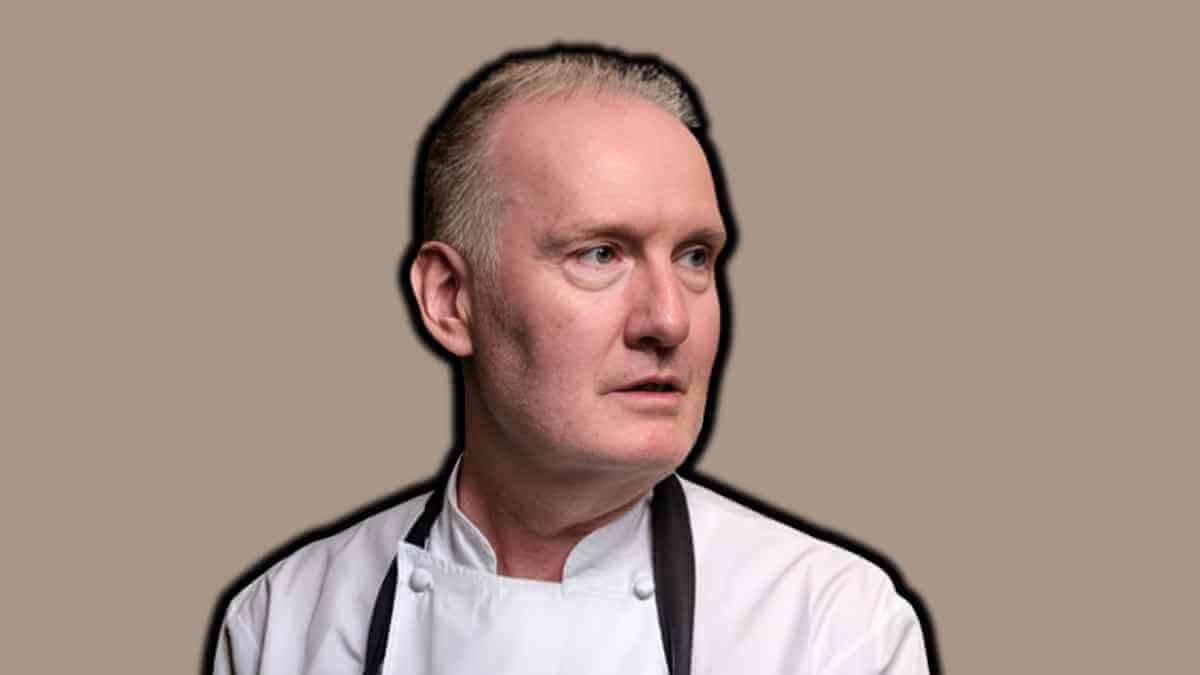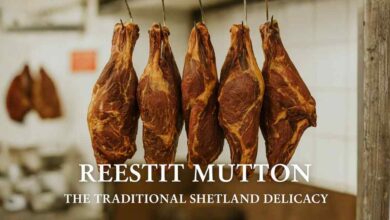Anthony Demetre: A Culinary Luminary Redefining Modern British Fine Dining

Anthony Demetre stands as a name synonymous with refined British gastronomy—an innovator whose vision has shaped London’s restaurant landscape over two decades. His journey from apprentice to Michelin-starred restaurateur mirrors the recent evolution of British fine dining itself. In this article, we explore his life, craft, philosophy and impact in depth.
Early Life and Culinary Roots
From a young age, Anthony Demetre exhibited a deep fascination with food. While details of his childhood are less publicised, his early decision to pursue cooking suggested a relentless curiosity and ambition. Before establishing his own brand, he honed his skills under some of the greatest minds in British gastronomy.
His formative years included stints with celebrated chefs such as Gary Rhodes, Pierre Koffmann and Marco Pierre White. These were not just jobs: they were transfusions of discipline, technique, and high expectations that instilled in Demetre the ethos of excellence.
The First Break: Putney Bridge and Rise to Recognition
One of Demetre’s first major achievements came at Putney Bridge—a restaurant in London where he was instrumental in earning a Michelin star in 2000. This milestone positioned him among the up-and-coming chefs of that era. The success gave him confidence, credibility, and a network to draw from for his own ventures.
At Putney Bridge, he was not content merely to replicate what had been done before. He aimed to marry classic technique with modern sensibility: signature dishes that were familiar yet daring, comforting yet elevated.
The Arbutus Era and Its Legacy
In 2006, Anthony Demetre launched Arbutus, a restaurant in Soho. This was his declaration that he intended to define his own culinary identity. At Arbutus, his food leaned more playful, less staid, while still grounded in technique and respect for ingredients.
Arbutus earned its share of plaudits. Indeed, under Demetre’s stewardship, it held a Michelin star for several years. It became not just a destination restaurant, but a platform for experimentation—tweaking traditions, embracing spontaneity, refining service.
Yet restaurants exist in the real world, and urban pressures like rent increases, real estate shifts and rising costs began to cast long shadows. Eventually Arbutus closed or transformed as London’s hospitality landscape evolved. But its influence carried forward and it remains a benchmark in many retrospectives of contemporary London dining.
Wild Honey: Re-imagining Fine Dining
After Arbutus, Demetre’s ambitions did not wane. Instead, he turned attention to a new project: Wild Honey, first in Mayfair, then in a bold new flagship concept, Wild Honey St James, opened in 2019 in the hotel space at Sofitel London St James.
Wild Honey represents a synthesis of everything Demetre had learned. The brand is rooted in British and European traditions, but with lightness, clarity and personality. It is not about rigid rules; rather, it is about creating memorable meals where precision doesn’t stifle warmth.
The Wild Honey St James venue is grand: a dining room in a heritage building, whose décor, room volume and ambience contribute to the total experience. Demetre and his team used the architecture of the building as part of the canvas for food, service and mood.
Critics and diners alike have responded positively. Wild Honey St James has retained a Michelin star in successive UK & Ireland guides from 2022 through to 2025. The restaurant’s longevity at high standards is testimony to Demetre’s consistency and vision.
Culinary Philosophy and Signature Style
Foundation in Technique
At the core, Demetre’s cooking is built on rigorous technique. His time working under the tutelage of Rhodes, Koffmann and White left indelible marks—not rigid schooling but a baseline of care, precision and respect for discipline.
Every method in the kitchen—sous vide, slow roasting, confits, water baths—is at the service of flavour, texture and balance. Demetre believes that technique should always serve the ingredient, not overshadow it.
Ingredient Integrity and Seasonality
Demetre is an ingredient advocate. He emphasises provenance, traceability and seasonal rhythm. Vegetables, fish and livestock are collaborators in the dish, not secondary considerations. He designs menus around what is freshest and what inspires on the day, and not what the cookroom demands.
This means his menus change, sometimes quite frequently. Diners expect variety, freshness and nuance—and that mindset is integral to his kitchen culture.
Elegance with Generosity
One of Demetre’s hallmarks is generous portions that do not compromise elegance. He rejects austerity for austerity’s sake; instead every plate wants to feel abundant, yet composed, light yet satisfying.
Further, he embraces technique without pretension. His approach is not to flaunt molecular gimmicks or shock for shock’s sake. Instead, you’ll find a refined balance, harmonious seasoning, contrast of textures and classic finishing touches.
Hospitality and Atmosphere
Anthony Demetre understands that fine dining is more than food—it is choreography, environment, service and storytelling. He is involved in the spatial design, the pacing, the dining room flow. The room, lighting and tableware all matter.
Service is polished but warm, informed without intimidation. He aims for an experience that feels elevated yet inclusive.
Key Dishes and Menu Highlights
To illustrate Demetre’s style, here are a few representative dishes. These evolve, but they articulate his approach.
A terrine en croûte—a textural challenge, balancing crisp pastry with tender fillings and seasoning.
A Loire Valley rabbit dish—lean meat, proper saucing, celebration of regional technique.
Custards, tarts and ice creams—Demetre has expressed a soft spot for dairy and desserts that comfort without heaviness.
Vegetable courses that shine: for example, seasonal brassicas dressed with nuance, or root vegetables with caramels and herbs.
His tasting menus often span five to eight courses, weaving interplay of courses, pacing, flavour arcs, sense memory and surprise.
Challenges, Adaptations and Impact
No chef or restaurant is immune to challenges. Rising costs, inflation, supply chain disruptions, staffing pressures and venue constraints are all realities. London’s hospitality market is extremely competitive.
Demetre has had to adapt. He has worked with lean but flexible teams, maintained loyal supplier relationships, and adjusted to diner sensibilities such as offering less rigid tasting menus and more optional choices while balancing cost pressures. He also understands the importance of consistency over novelty.
His impact extends beyond his restaurants. Many younger chefs cite Arbutus and Wild Honey as inspirations. His balance of classical grounding and forward thinking has contributed to shaping a generation of British fine dining.
Reception, Awards and Critical Acclaim
Anthony Demetre’s body of work has drawn high praise from critics, peers and guides.
Michelin stars have been awarded to several of his restaurants, especially Wild Honey St James across multiple years.
He has gained recognition in UK guides and publications for food, service, wine and consistency.
He is frequently included in lists of influential chefs shaping modern London dining.
Most importantly, his restaurants tend to enjoy durable reputations—not fads that shine for one season and vanish, but brands that maintain high standards and genuine identity.
What Sets Demetre Apart in a Crowded Landscape
With so many talented chefs and countless restaurants vying for attention, what distinguishes Demetre?
Balanced Vision: He is not a purist in any single direction. He is not molecular just for show, nor dogmatically traditional. He blends structure with warmth, precision with generosity.
Sustained Excellence: Many chefs launch dazzling restaurants but struggle to sustain them. Demetre’s consistency—over years and across venues—separates longevity from momentary sparkle.
Holistic Approach: He is not just cooking, but narrative, spatial design and experience curation. He treats everything from menu to ambience to service as threads of the same tapestry.
Mentorship and Legacy: Through his kitchens, he influences next generations. His chefs and staff absorb his philosophy and sometimes go on to lead new kitchens, multiplying his impact.
Potential Future Directions
Looking ahead, Anthony Demetre has several fertile avenues.
Expansion or Offshoots: New Wild Honey locations or satellite brands that carry the signature but adapt to neighbourhoods or cities.
Publishing and Media: A richly illustrated cookbook or media project could share his sensibility widely.
Sustainability and Innovation: Furthering zero waste, hyper-local sourcing, seasonal experimentation and perhaps regenerative farming partnerships.
Training Programmes: Structured mentoring to groom future chefs in his philosophy, helping to repair the “lost apprenticeship” gap in modern kitchens.
Conclusion
Anthony Demetre is a chef who embodies the evolution of British fine dining: respectful of tradition, insistent on progress. His path—from early mentorships to attaining Michelin stars—reveals a temperament both ambitious and grounded. His restaurants, first Arbutus and now the flagship Wild Honey St James, reflect a coherent philosophy: technique that elevates, ingredients that speak, hospitality that warms.
In a city of constant novelty, he has built endurance. His dishes may change, but his voice remains distinct, persuasive and human. He does not chase trends; he shapes them. For anyone keen to understand what modern British haute cuisine can mean in the twenty-first century, the story of Anthony Demetre remains essential.



